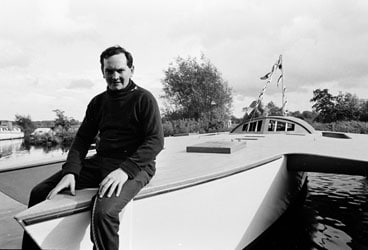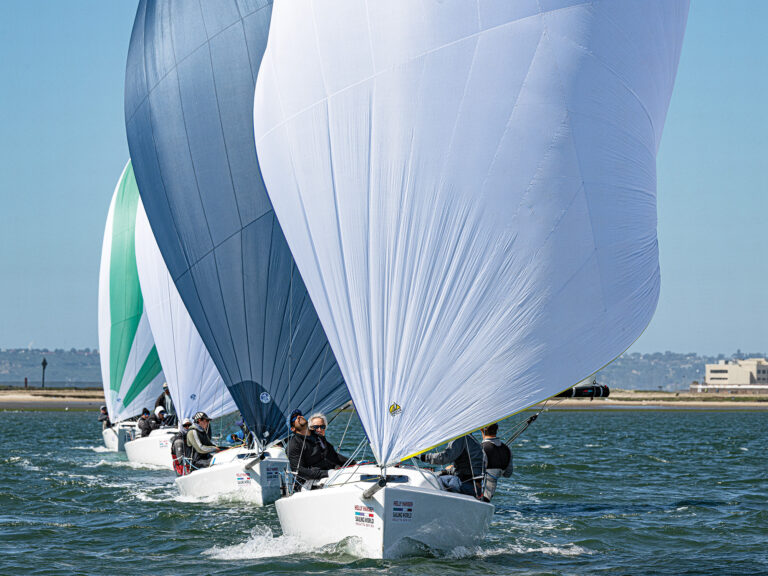
FBDeepWater368
Since its 1992 release, the movie “Wind” has stood unchallenged as competitive sailing’s best and worst representative on the silver screen. No matter what you think of Matthew Modine’s quest to win back the America’s Cup or Jennifer Gray’s innovative masthead kite, The Whomper, you must agree that this genre of sailing films is in dire need of an update.”Deep Water,” which opens in New York and Los Angeles this Friday, adds another title to the lonesome category. The IFC Films documentary won’t make our sport any cooler in the eyes of the mainstream, but it will at least provide honest representation. You won’t see anyone hoist a spinnaker on a pickup truck; no team dance on the foredeck, no tank test in a raging creek. In fact, the only similarity between “Deep Water” and “Wind” is the common backdrop of sailboat racing.The documentary explores Donald Crowhurst’s tragic undoing in the 1968 Sunday Times Golden Globe Race, the first solo round-the-world challenge. Crowhurst, a 36-year-old family man with a failing marine electronics business, entered the race inexperienced, unprepared, and underfunded. As race winner Robin Knox-Johnston says in the film, “Don Crowhurst sailed over the horizon into oblivion.” The pressures of the race, of his financial situation back home, and of his own unrealistic ambitions caused Crowhurst to lie about his progress, suffer a complete mental breakdown, and ultimately, take his own life.Directors Louise Osmond and Jerry Rothwell do a clever job of piecing together a narrative from Crowhurst’s personal audio and video recordings, from his logbook, from archival news footage, and from interviews with friends and family members. The interviews are particularly poignant. Seeing a young Simon Crowhurst bid his father farewell in 1968, then seeing the full-grown man still trying to reason why his father never came back, you begin to sense the real depth of the tragedy. What I find most engaging about “Deep Water” is the way the filmmakers systematically and sympathetically detail Crowhurst’s unraveling. He didn’t start out mad. He started out an average guy looking to do something great for himself and his family. But Crowhurst made weak decisions every step of the way, from indebting himself to his sponsor to setting sail in an untested vessel to falsifying position reports. He compounded his problem by trying to cover up mistakes, creating a twisted–but oddly understandable–dilemma to which the only solution his ego could accept was death. As a portrait of human nature, “Deep Water” is a full success. As a film about sailing, however, it may leave some viewers wanting more. The documentary suffers from a lack of footage showing Crowhurst actually sailing Teignmouth Electron, his plywood trimaran. Even if the footage existed, it would surely disappoint–a premise of the film is that Crowhurst made a lousy ocean adventurer. Still, more visuals of Crowhurst at sea would have helped dramatize the high seas adventure aspect of the film. “Deep Water” does little to glorify the sport of sailing–in fact, it doesn’t really pay it much attention– but it does offer a very real depiction of one very real sailor. Even better, at no point during the documentary does the crew exclaim, “Let’s roll tack this mother.”To view the “Deep Water” trailer, click here.









